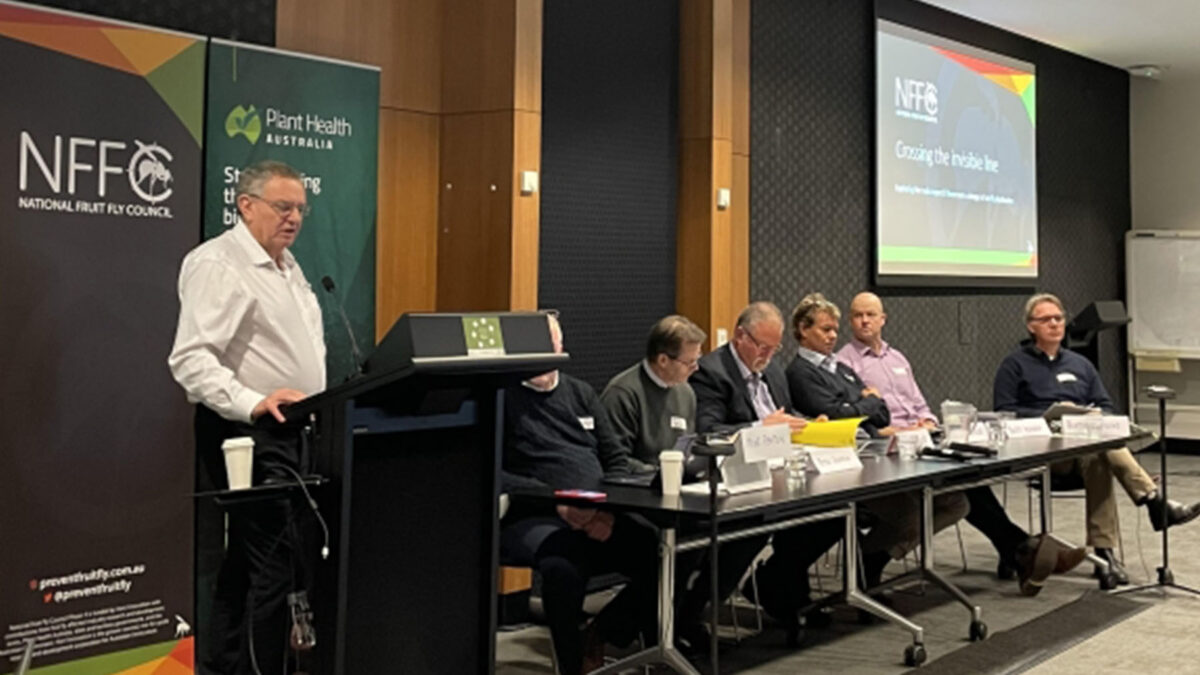Hypothetical exploration a success
The National Fruit Fly Council (NFFC) recently hosted an exercise with a difference. Almost 90 stakeholders in Brisbane and Melbourne participated in an hypothetical exercise to explore potential trade disruptions if Australia’s fruit fly distribution were to change and what it would mean for industry.
Over $600 million in annual horticultural export trade relies on phytosanitary agreements with fruit fly sensitive countries that have been negotiated based on our current Queensland fruit fly (Qfly) and Mediterranean fruit fly (Medfly) east-west distribution. Changes, or suspected changes, to our fruit fly distribution could result in suspended trade and changes to market access criteria in both export and domestic markets.
The exercise introduced a hypothetical “what if” scenario which explored the implications of the establishment of Medfly on the east coast of Australia. Unlike emergency exercise formats, which follow a scripted situation and where current response mechanisms are tested, the hypothetical nature of this scenario allowed for a greater exploration of the issues involved and a broader consideration of the complex influencing factors surrounding biosecurity and trade in the fruit fly space.
Attendees from horticultural industries, state and commonwealth government agencies, explored the potential implications if the invisible line of fruit fly distribution was crossed.
Topics such as preparedness, phytosanitary treatment options, timing and costs were among the areas covered which helped to build a picture of the implications. But also emerging from the session was a deeper appreciation of the roles we all play in managing fruit fly, as participants were able to clarify the issues which influence their decision-making processes, and different perspectives in which this issue is approached.
A range of key considerations was captured throughout the exercise, and these will be used to initiate further discussion and the development and prioritisation of suitable responses. Additionally given the success of the format it is likely that this hypothetical-based approach will be considered for future exercises.
The hypothetical sessions have ensured that those involved across our national fruit fly system are even better prepared, ensuring our ongoing success in maintaining our vital east/west protocol.
